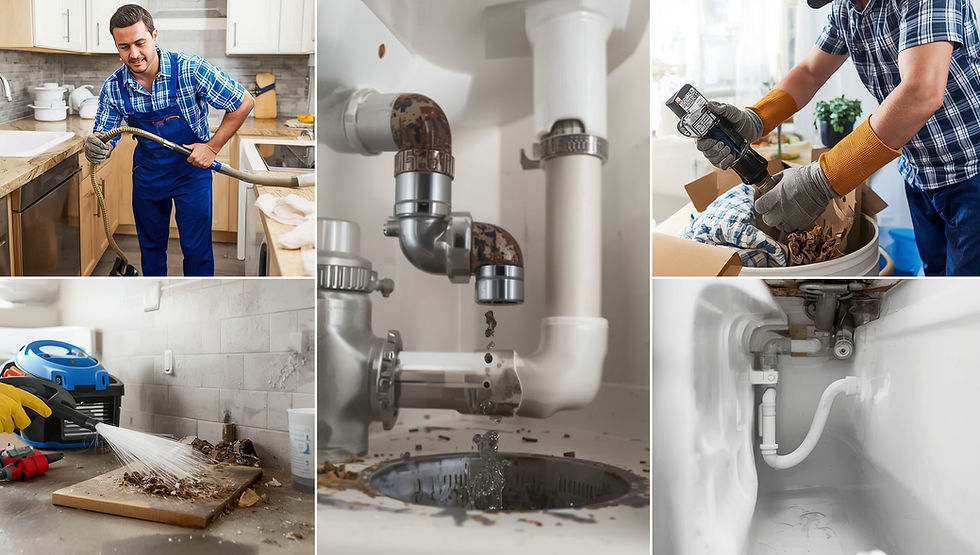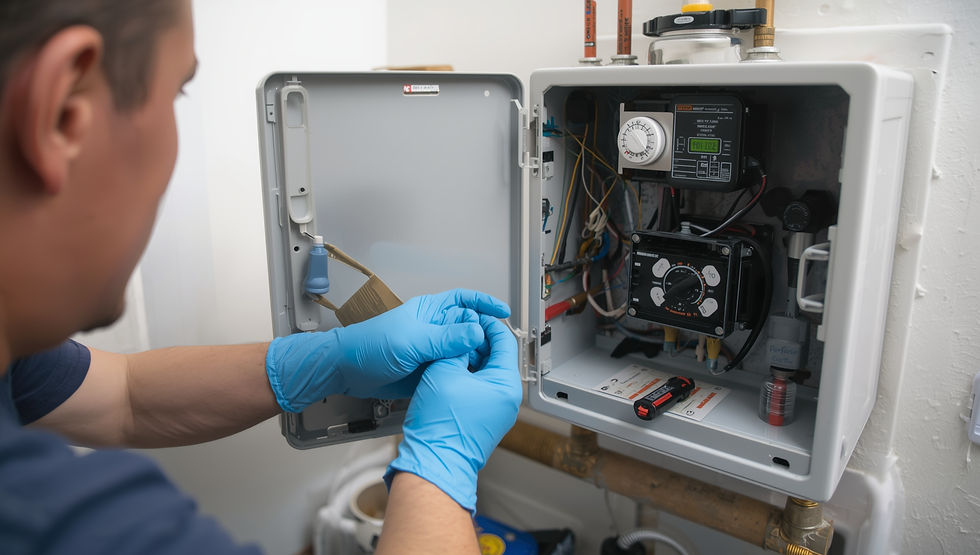Why Can't PVC Be Used in Commercial Plumbing?
- bradleyserranomark
- Jun 4, 2025
- 3 min read
Plumbing is very important in buildings. It helps water flow in and out safely. Picking the right plumbing pipe types is key, especially in big buildings like schools, malls, or hospitals. One pipe often used in homes is called PVC, or Polyvinyl Chloride. But PVC is not the best choice for commercial plumbing. Let's find out why.
What Is PVC and Where Is It Used?
PVC stands for Polyvinyl Chloride. It is a type of plastic. It is light, cheap, and easy to use. In homes, it is used for drains, toilets, and vent pipes. PVC pipe benefits include being corrosion-resistant and simple to cut and glue. Because of these PVC pipe uses, many people like it for residential plumbing.
Commercial Plumbing Is Different
Commercial plumbing is not the same as home plumbing. Commercial buildings are bigger and used by more people. So, the plumbing needs to handle more water, more often. Commercial plumbing materials must be stronger and last longer.
There are also strict rules called plumbing codes. These rules help keep buildings safe. Commercial plumbing codes say what materials are okay to use. Many of these codes do not allow PVC in commercial buildings. Why? Because PVC has some big limits.
Why PVC Is Not Good for Commercial Plumbing
1. PVC Cannot Handle Heat Well
PVC pipes melt or bend if water is too hot. Commercial systems often use hot water. That makes PVC a bad choice. Other materials, like CPVC or copper, can take higher heat.
2. PVC Breaks Under High Pressure
Commercial plumbing has higher pressure than home plumbing. PVC pressure rating is too low. It can crack or burst under heavy use.
3. PVC Is Not Fire-Safe
In case of a fire, PVC can burn and give off harmful smoke. That is dangerous in large buildings with many people. Fire safety rules often ban PVC for this reason.
4. PVC Does Not Last Long in Harsh Conditions
Some commercial places use strong chemicals. PVC may not resist these chemicals. This can cause leaks and damage. Stronger commercial plumbing pipe materials are needed.
Better Options Than PVC
There are other plumbing pipe types that work better in commercial settings:
CPVC (Chlorinated PVC)
CPVC looks like PVC but is stronger. It handles hot water better. CPVC vs PVC shows CPVC wins in heat and pressure use.
Copper Pipes
Copper plumbing pipes are strong and last long. They do not burn and can take high pressure. Many plumbers choose copper for big buildings.
Galvanized Steel Pipes
These pipes are tough and fire-safe. They are used in places that need extra strong plumbing.
PEX Pipes
PEX is flexible and easy to install. It handles hot and cold water well. It is a good choice for many commercial uses.
Real-Life Examples
One school tried using PVC for its plumbing. After a year, the hot water caused cracks. The school had to replace the pipes, which cost more money.
In another case, a hospital used CPVC instead of PVC. The pipes worked well with hot water and strong cleaners. There were no leaks or problems. This shows why using the right commercial plumbing materials matters.
Conclusion
PVC plumbing pipes work well in homes. But they are not good for commercial plumbing. PVC pipe temperature limits, pressure problems, and fire safety risks make it a poor choice. Commercial plumbing pipe materials like CPVC, copper, and steel are safer and stronger.
Always follow commercial plumbing codes and building rules. Picking the right pipes helps keep people safe and buildings working well. For big jobs, talk to a professional for plumbing pipe selection. Getting expert plumbing advice makes a big difference.
So, next time you think about plumbing, remember: PVC might be fine for your home, but not for a big building!





Comments